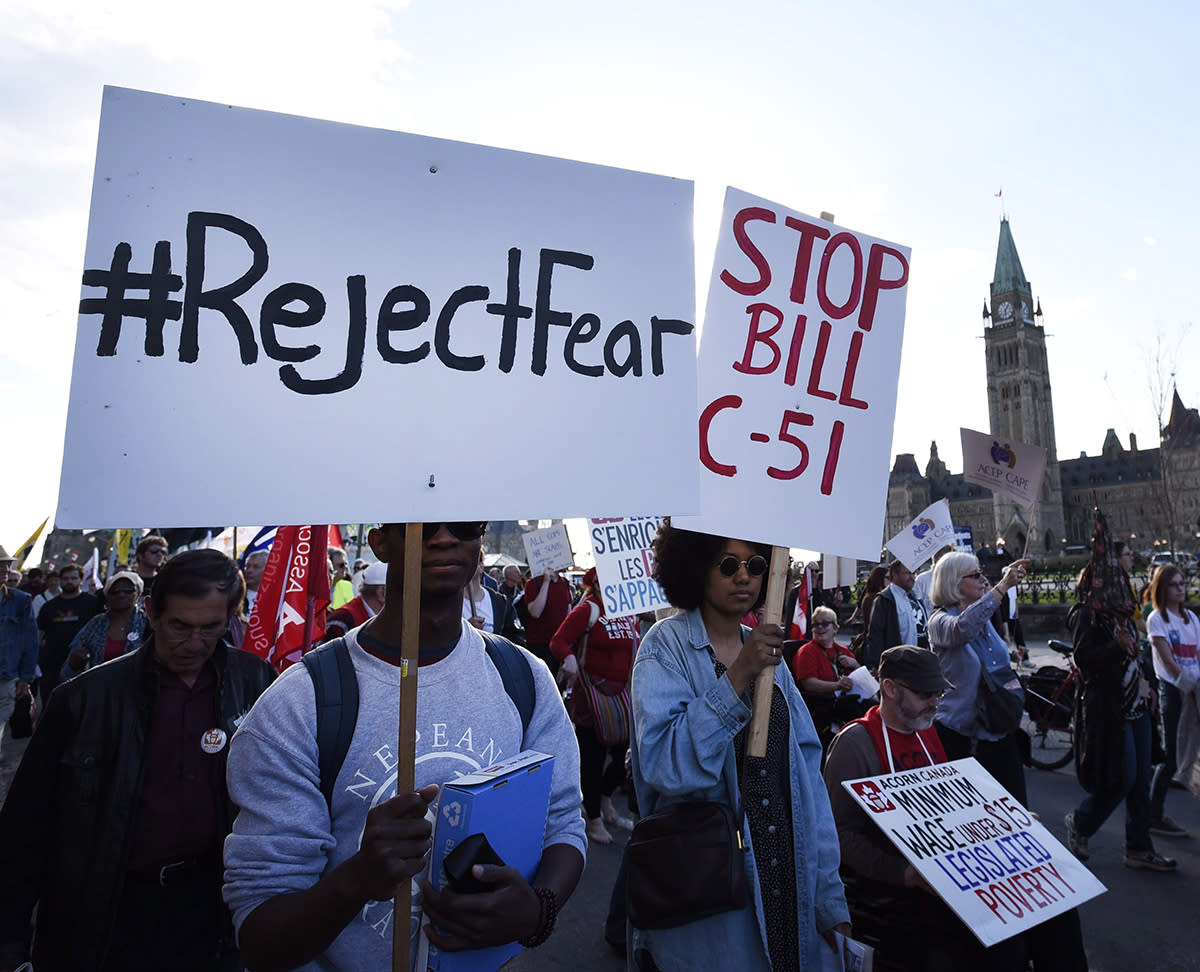With electoral reform out, is Bill C-51 next on the chopping block?

Justin Trudeau’s government abandoned a long-standing campaign promise this week when they nixed a pledge to introduce electoral reform before the next federal vote.
The move sparked fears that other key campaign promises, like repeals to the controversial Anti-terrorism Act, known as Bill C-51 before it became law, could be discarded too.
While Trudeau’s election platform only ever proposed reforms to the legislation, privacy advocates hoping for a bigger overhaul are concerned.
“We’ve always been worried,” David Christopher, a spokesperson for OpenMedia, an advocacy group fighting for the full repeal of the bill, told Yahoo Canada News.
“I believe in their election platform they specified a few things that they wanted to change, but really it was tinkering right in the margin, rather than dealing with the issue,” he said.
Reforms to the legislation went through a consultation process in December. The committee studying the reforms will come out with a report and recommendations some time in 2017. But whether the government will heed their results is another story.
“The million-dollar question though is ‘What is the government going to do with that public sentiment?’ Will they actually repeal Bill C-51 and come up with privacy rules that actually make sense?” said Christopher.
Bill C-51 was introduced by the Harper government in 2015. It sets out extensive anti-terror laws that expanded on legislation enacted by the former Liberal government after 9/11. The law expansive powers to police authorities to target activities that ‘undermine Canadian security’ and facilitate information sharing among 17 known federal institutions.
Upon its introduction, the bill was opposed by the NDP, Green Party and Bloc Quebecois.
Justin Trudeau’s Liberals, who were in third party status at the time, supported the legislation. But Trudeau promised to repeal “problematic” areas, like giving CSIS extensive powers, of the law during the 2015 election campaign.
However, C-51 in its original form still remains in place.
Exiled NSA hacker Edward Snowden has even condemned the legislation, saying: “[Before Bill C-51] it was actually incredibly difficult to spy on someone even in oblique ways, but the framework of Canadian intelligence oversight has absolutely collapsed with Bill C-51 … It’s easy to collect information about Canadian citizens in bulk, particularly the meta-data.”
Much like the electoral reform file, it’s entirely possible no changes will be made despite a committee report recommending softer, or an entirely different anti-terror strategy.
Campaign promises to repeal bill C-24 (now Bill C-6 which will make amendments rather than repeal the law), restoring voter ID cards as acceptable forms of identification, immediate permanent residency for spouses and repeals to Bill C-42, which allows restricted firearms to be freely transported, have also yet to be set in motion.
“I think they would really pay a huge political price if they ignore Canadians on this one,” Christopher said. “I hope that they really do listen to what people are saying and that they respect the beliefs of Canadians. But there is every chance that that won’t be the case.”
Christopher expects that the results of the report will be clear.
“People overwhelmingly want to see bill C-51 repealed,” he said, citing 15,000 Canadians that were channelled and encouraged by through OpenMedia to attend town halls and meetings as part of governmental consultations on the bill and submissions presented on their behalf.
“I think this issues is going to keep on haunting them until the next election because we’re not going to let go of this until we see the end of Bill C-51,” Christoper said. “This issue is not going to go away”


